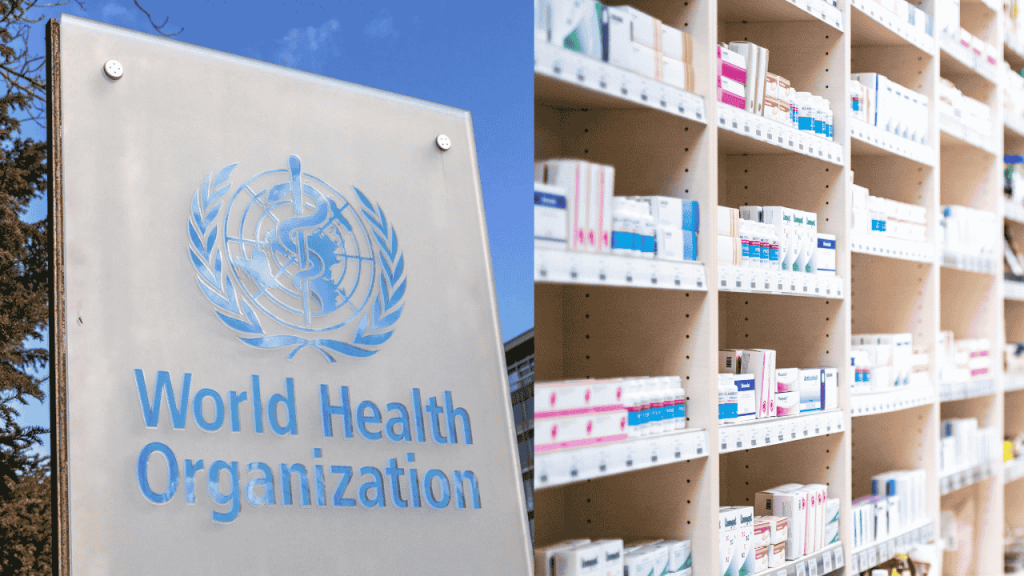Despite Pakistan’s position as one of the largest pharmaceutical manufacturers in South Asia, only four medicines from the country have received WHO prequalification, raising serious concerns about global credibility and access to international markets.
The WHO prequalification of Pakistani medicines is more than a label—it’s a vital gateway to global procurement platforms, including those run by UNICEF, UNAIDS, and the Global Fund. Without this endorsement, Pakistani pharmaceutical products remain ineligible for international tenders, including for critical, life-saving drugs like antiretrovirals (ARVs) for HIV/AIDS and anti-tuberculosis (TB) medicines.
“Pakistani pharmaceutical companies are hesitant due to the high cost and stringent regulatory requirements,” admitted a senior official from the Drug Regulatory Authority of Pakistan (DRAP). “They feel they can’t compete with Indian and Chinese companies that benefit from cheaper raw materials and economies of scale.”
However, experts argue that reluctance is no longer an option. WHO prequalification is essential for gaining global trust and expanding export potential, especially in the arena of vaccines and biologicals.
Notable Achievements Amidst Lagging Industry Effort
Leading the way is PharmEvo, a Karachi-based company that became the first Pakistani manufacturer to secure WHO prequalification for both zinc sulfate oral solution and dispersible tablets. These milestones not only placed Pakistan on the global map but made it the first country worldwide to be prequalified for zinc oral solution and the fourth among low- and middle-income nations for the dispersible tablets.
Similarly, Remington Pharmaceuticals achieved a significant breakthrough by getting WHO prequalification for Levofloxacin 250mg—a crucial anti-TB medicine—marking it as the first nationally owned company to reach this level.
Yet, these are isolated victories. With over 700 pharmaceutical companies in Pakistan, the total number of WHO-prequalified products remains at just four, a stark contrast to India’s 124 WHO-prequalified medicines for HIV, TB, and malaria.
Regulatory Hurdles and the Way Forward
The WHO Prequalification Programme entails a five-step process, including dossier submission, technical evaluation, site inspections, and final approval based on Good Manufacturing Practices (GMP). Although completion is possible in three months, the timeline is often extended due to compliance gaps and lack of technical preparedness.
To address this, WHO and UNAIDS have committed support to upgrade DRAP’s regulatory framework to GBT Maturity Level 3, a global benchmark for trustworthy national regulatory systems.
UNAIDS Country Director Trouble Chikoko praised Pakistan’s initiatives but urged provincial governments to add ARVs and opioid substitutes to essential drug lists, enabling direct procurement and ensuring continuity for vulnerable patients.
Government Action Plan and Global Support
At a recent high-level policy dialogue, stakeholders from DRAP, WHO, the Ministry of National Health Services, and UN partners agreed to issue a nationwide call for Expressions of Interest for local manufacturers to pursue WHO prequalification for HIV, TB, and malaria medicines.
Technical support, capacity-building workshops, and fast-track consultations are also planned to help Pakistani manufacturers navigate the complex application process, reduce costs, and enhance dossier readiness.
Conclusion:
The WHO prequalification of Pakistani medicines is not just a compliance issue—it’s a national priority. With regional competitors dominating global procurement, Pakistan must act now to strengthen its pharmaceutical regulatory system, embrace international standards, and position itself as a reliable supplier of high-quality medicines.
The road ahead may be challenging, but with political will, industry reform, and international support, Pakistan’s pharmaceutical industry can rise to global prominence—one prequalified medicine at a time.



Comments (0)
No comments yet. Be the first to comment!
Leave a Comment